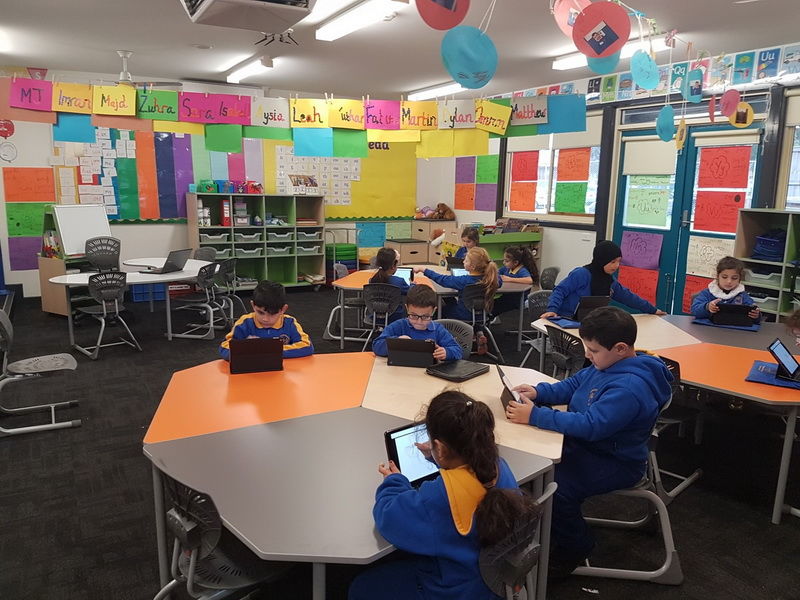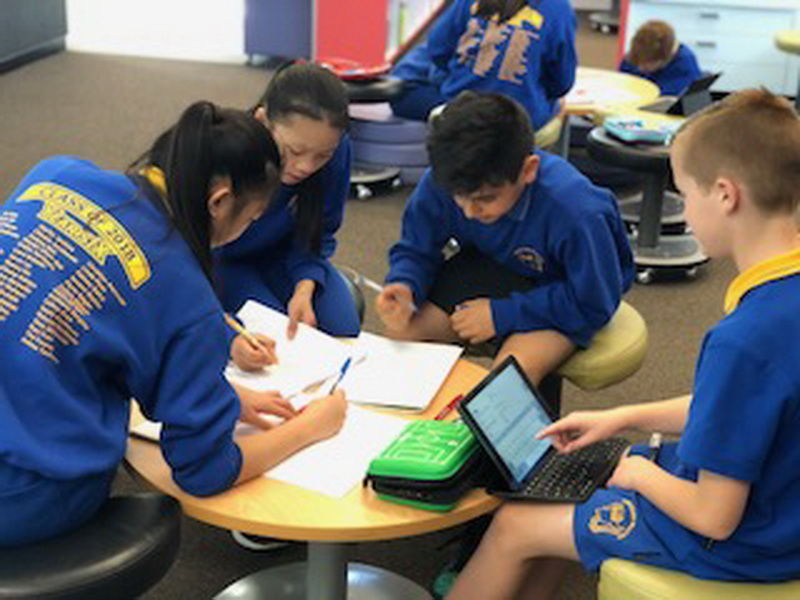Curriculum Reporting
| At Thomastown Meadows, teachers are committed to working together to plan diverse learning experiences that develop happy, active and independent learners. Thomastown Meadows provides a comprehensive program built around the Victorian Curriculum. All the integrated units have been designed as teams, to incorporate 21st Century learning skills. We also take into consideration the needs of our students, so that their learning is prioritised. Skills such as problem solving, communication, creativity and collaboration are developed through Robotics, Digital Technologies, Respectful Relationships, History and Geography. These are some of the content areas that students develop knowledge and skills in. The Integrated Curriculum is built around a two year cycle. Each unit has a ‘big idea or big question’ to investigate and learn about. Students are involved in a range of experiences, which are designed to deepen world understanding and continually build on skills and capabilities over time. Literacy and Numeracy are core priorities at Thomastown Meadows Primary School. We have a strong commitment to providing students with experiences that will develop skills for lifelong learning and active citizenship. There is a commitment in our weekly program for ten hours of Literacy and six hours of Numeracy. Teachers plan together, to design learning experiences that continually build on student learning and develop the knowledge, understanding and skills of individuals. At Thomastown Meadows our oral language program in the Foundation Year is an additional program that provides students with explicit and direct experiences. Students learn vocabulary in order to understand and express language. As part of our Literacy program, students have regular formative and summative assessments. Students are quickly identified if they need extra support in reading. They have intensive and explicit instruction in small groups, covering decoding, phonics and comprehension, which is targeted at their point of need. Parents are invited to meet with the classroom and reading support teacher to discuss their child’s learning and the best way to assist at home. We are passionate about teaching students to be numerate in everyday life. Our Maths program promotes students having a growth mindset towards the learning of maths. The proficiencies of understanding, reasoning, problem solving and fluency are embedded in the everyday teaching and learning experiences. At Thomastown Meadows Primary School, mathematics is as much developing a number sense as it is about the content areas of Number, Measurement and Geometry and Statistics and Probability. We believe every student can learn and we are a community that works together to build the responsibility, independence and sense of achievement for each student. The Victorian Curriculum can be found at victoriancurriculum.vcaa.vic.edu.au
|
|
Reporting
At Thomastown Meadows, we report on student achievement against Victorian standards in a written report twice a year. Reports are accessed digitally through our Compass platform. We also report student achievement based on a set of skills directly linked with the Victorian Curriculum.
We believe it is important that parents have a sense of their child’s learning and that students also have responsibility for their own learning and achievement. In addition to the written reports, formal parent meetings are conducted twice a year. The first is a ‘Meet the Teacher’ and the second is a 3 Way Student Led Conference which allows students the opportunity to assess and describe their own learning against goals they have set throughout the year.
Our teachers are committed to communicating with parents and we encourage informal and formal meetings to ensure that students are provided with the best opportunities possible.
IPad Program
At Thomastown Meadows teachers are excited to integrate a 1:1 iPad program in their teaching and learning from Foundation to Year 6. IPads are used to capture learning, develop higher order thinking, publish work, create digital solutions and work collaboratively. These skills will support students to thrive in a global digital world. We have an onsite technician to support teachers and students with iPads to ensure the effective use and accessibility of iPads on a daily basis. We believe it’s imperative for our students to be safe and ethical users of technology and we promote this through our ongoing cyber safety learning.
The Digital Technologies curriculum enables students to become confident and creative developers of digital solutions through the application of information systems and specific ways of thinking about problem solving.
Students acquire a deep knowledge and understanding of digital systems, data and information and the processes associated with creating digital solutions so they can take up an active role in meeting current and future needs.
The curriculum has been designed to provide practical opportunities for students to explore the capacity of information systems to systematically and innovatively transform data into digital solutions through the application of computational, design and systems thinking.
The curriculum also encourages students to be discerning decision makers by considering different ways of managing the interactions between digital systems, people, data and processes (information systems) and weighing up the possible benefits and potential risks for society and the environment.
| Aims The Digital Technologies curriculum aims to ensure that students can:
|  |
Learning in Digital Technologies
| In Digital Technologies, students are actively engaged in the processes of analysing problems and opportunities, designing, developing and evaluating digital solutions, and creating and sharing information that meets a range of current and future needs. Students learn to safely and ethically exploit the capacity of information systems to create digital solutions. These solutions and information are created through the application of computational, design and systems thinking, and technical skills. Key conceptsUnderpinning the learning in Digital Technologies is a set of key concepts (outlined below) that establish a way of thinking about problems, opportunities and information systems and provide a framework for knowledge and practice. The key concepts of abstraction, data collection, representation and interpretation, specification, algorithms and development correspond to the key elements of computational thinking. Collectively these concepts span the key ideas about the organisation, representation and automation of digital solutions and information. They can be explored in non-digital or digital contexts and are likely to underpin future digital systems and provide a language and perspective that students and teachers can use when discussing Digital Technologies. Details of how ICT can support student learning in Digital Technologies is set out in the attached Information Communication Technologies and Digital Technologies pdf. |
|





